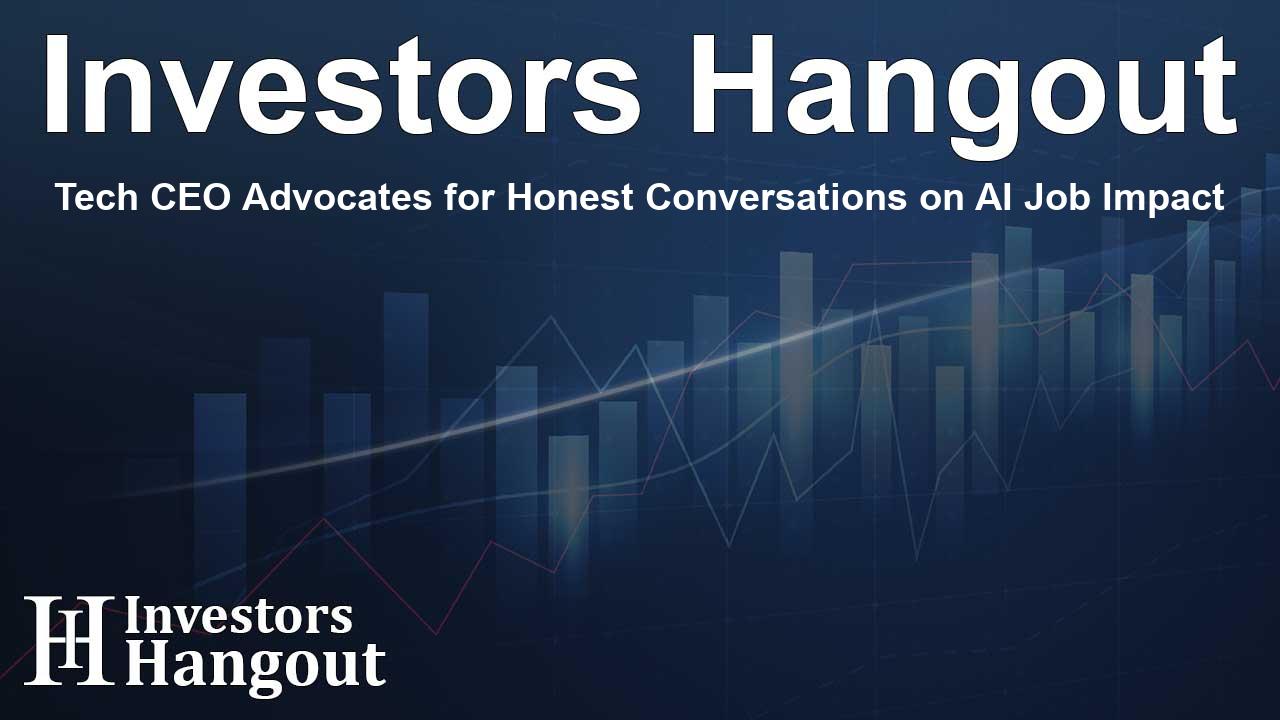Tech CEO Advocates for Honest Conversations on AI Job Impact

Embracing AI Transparency in the Workplace
As technology continues to progress rapidly, it's crucial for leaders to prioritize clear communication about how artificial intelligence is affecting the job market. Recently, Jim Kavanaugh, the CEO of World Wide Technology, highlighted that employees are smart enough to see through any misleading narratives surrounding AI's impact on their roles.
Understanding AI's Potential to Reshape Jobs
The Importance of Honest Dialogue
Kavanaugh believes that pretending changes won't happen is simply unrealistic. He pointed out that today’s workforce is more informed than ever, which means CEOs must partake in open and honest conversations about how AI might disrupt their industries. "If you think you can keep everything the same and maintain a perfect environment, that's just not true," he noted.
The Dual Nature of AI: Challenges and Opportunities
While admitting that AI could lead to job displacement, Kavanaugh is hopeful that it will also boost productivity and create new job opportunities. Instead of viewing AI purely as a threat, he urges leaders to embrace it, and to invest time in educating themselves and their teams so they can successfully navigate this transformative period.
Industry Leaders Share Perspectives
Echoing Kavanaugh’s views, Clara Shih from Salesforce has shared her perspective on the matter as well. She asserts that AI is more likely to generate new job opportunities than to eliminate existing positions. Salesforce has responded to this change by introducing AgentForce, a platform aimed at streamlining various tasks through AI.
The Reality of Workforce Changes
Conversely, some companies, such as Klarna, have adopted AI technologies resulting in substantial staff reductions. This highlights the varying effects of AI across different sectors, emphasizing the need for both companies and employees to quickly adjust to these transformations.
Broader Discussions Around AI in the Workforce
The conversation around AI’s impact on the labor market is gaining momentum. Business leaders like Bill Gates have expressed concerns about AI’s influence on both blue-collar and white-collar roles. Gates noted that while AI can aid in many tasks and improve efficiency, its potential to disrupt traditional job settings is significant and cannot be overlooked.
The Inevitable Shift in Employment Structures
Furthermore, recent research indicates that a notable percentage of businesses are implementing AI, with 37% having replaced some employees with this technology. Looking to the future, 44% of companies predict further layoffs resulting from advancements in AI in the coming year, underlining the urgent need for strategic workforce planning.
Futuristic Insights on Employment
Reid Hoffman, a co-founder of LinkedIn, has foreseen that the conventional 9-to-5 work schedule may soon become outdated. He believes this shift is driven by emerging AI technologies and the gig economy, leading to a workforce that is more flexible and productive, though not without challenges to job security.
Adapting to Change in the Job Market
As we approach these significant shifts, it’s essential for individuals and organizations to prepare for an evolving job market where roles and workforce dynamics are continually changing. By emphasizing education and adaptability, both employees and leaders can navigate these unprecedented transitions with assurance.
Frequently Asked Questions
What did Jim Kavanaugh emphasize about AI in the workplace?
Jim Kavanaugh emphasized the importance of transparency from CEOs regarding AI's impact on jobs, asserting that employees are too savvy to be misled.
How can AI disrupt job markets according to current perspectives?
AI has the potential to displace certain jobs while simultaneously creating new opportunities and enhancing productivity, with its effects varying across different industries.
What is Salesforce's approach to integrating AI?
Salesforce has introduced AgentForce, an AI platform designed to help companies with various tasks, demonstrating their readiness to adapt to the shifting work landscape.
How prevalent is AI adoption among companies?
Recent studies show that 37% of companies have already replaced some employees with AI, and 44% expect further layoffs in the near future due to advancements in AI.
What is the future of traditional jobs according to Reid Hoffman?
Reid Hoffman predicts the decline of the traditional 9-to-5 work model due to the rise of AI and the gig economy, encouraging more flexible employment structures.
About The Author
Contact Owen Jenkins privately here. Or send an email with ATTN: Owen Jenkins as the subject to contact@investorshangout.com.
About Investors Hangout
Investors Hangout is a leading online stock forum for financial discussion and learning, offering a wide range of free tools and resources. It draws in traders of all levels, who exchange market knowledge, investigate trading tactics, and keep an eye on industry developments in real time. Featuring financial articles, stock message boards, quotes, charts, company profiles, and live news updates. Through cooperative learning and a wealth of informational resources, it helps users from novices creating their first portfolios to experts honing their techniques. Join Investors Hangout today: https://investorshangout.com/
The content of this article is based on factual, publicly available information and does not represent legal, financial, or investment advice. Investors Hangout does not offer financial advice, and the author is not a licensed financial advisor. Consult a qualified advisor before making any financial or investment decisions based on this article. This article should not be considered advice to purchase, sell, or hold any securities or other investments. If any of the material provided here is inaccurate, please contact us for corrections.
